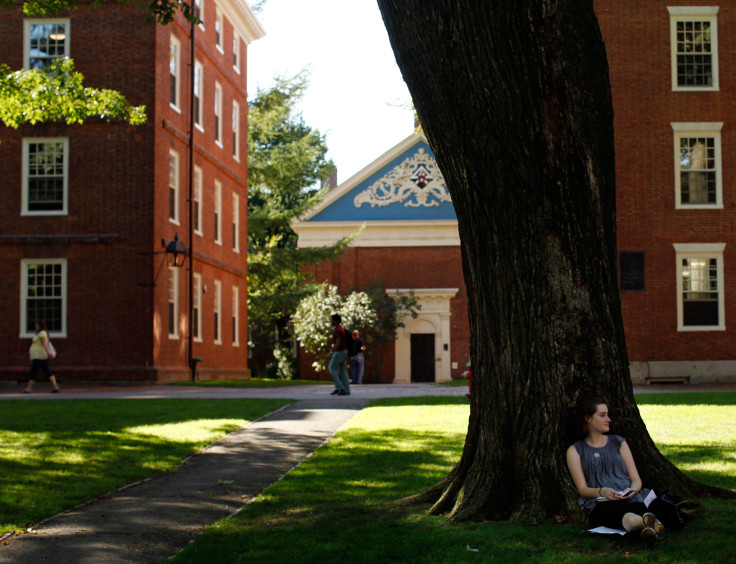Privacy In Higher Education: Consent Concerns Arise After Harvard University Takes Secret Pictures Of 2,000 Students For Research

Harvard University was reviewing Thursday a vice provost's decision to secretly photograph 2,000 students in 10 classes last spring for a study on attendance. The outrage this week at a standing-room-only faculty meeting where the experiment was revealed signaled a bigger trend: Privacy has become a hot-button issue around the world, and the issue now involves colleges.
The Federal Educational Rights and Privacy Act protects students' grades from being disclosed without consent, but schools are constantly collecting other data. Learning management systems like Blackboard can track how long students are logged on and what class documents they look at. Some schools, like Northern Arizona University, embed radio-frequency identification chips in student IDs. Even card swipes are logged. That's how the University of Massachusetts Dartmouth found out bombing suspect Dzhokhar Tsarnaev visited the gym after the Boston Marathon.
"It makes people uneasy because now they're going to wonder, 'What else is the institution doing without my consent or me being aware?'" Joy Blanchard, an assistant professor of higher education at Florida International University, told the International Business Times.
The debate revolves around whether students should have a reasonable expectation of privacy at college. Jeffrey Sun, a higher education professor at the University of Louisville in Kentucky, told IBTimes that while what happens in dorm rooms is largely confidential, students should not enter classrooms and think what they do there is private. "These days, with Snapchat and all these other things, people could be taking photos of you and shooting them off," Sun said. "I expect that a lot of students are actually engaging in photos and even recording people in classes."
Other schools outline image consent policies on their websites. Westminster College in Washington, D.C., stated that students photographed attending events at public venues, like games or concerts, "will be understood to have authorized Westminster to use their likeness in print and electronic materials to promote the college." At Seattle University, no release was required if a student was in a classroom because there was no reasonable expectation of privacy, according to its website.
Harvard's research was for internal use -- the project centered around notions of students skipping classes, shirking homework and taking fewer notes. Peter K. Bol, Harvard's vice provost for advances in learning and the leader researcher on the study, wanted to track attendance by taking pictures in lecture halls, but he didn't tell classes' professors or students in advance. "We did not want to bias the sample," Bol said in a prepared statement. "We wanted to know if we could get valid evidence on attendance, and we wanted to see if there were any patterns in the data that might support conclusions about whether or not we should care."
The school's research body approved Bol's research before the project began. The board said because it didn't constitute human subjects research, it wasn't necessary to ask students' permission. Bol installed a camera in a lecture hall, snapped pictures of classes and calculated the number of students in each audience. He then notified the course administrators and gave them the option of being removed from the study. All of them agreed to the use of the data. "Faculty do care about their classes and their students," Bol said.
But that didn't make it OK, computer science professor Harry Lewis said at a faculty meeting. "Just because technology can be used to answer a question doesn’t mean that it should be," Lewis said. "And if you watch people electronically and don't tell them ahead of time, you should tell them afterwards." After Tuesday's meeting, Bol said he planned to notify students that their pictures had been taken, the Harvard Crimson reported.
Both Blanchard and Sun said the students -- and especially the teachers -- should probably have been informed before the classroom study. "I don't think it's illegal," Blanchard said. "Unethical? Yes."
© Copyright IBTimes 2025. All rights reserved.






















